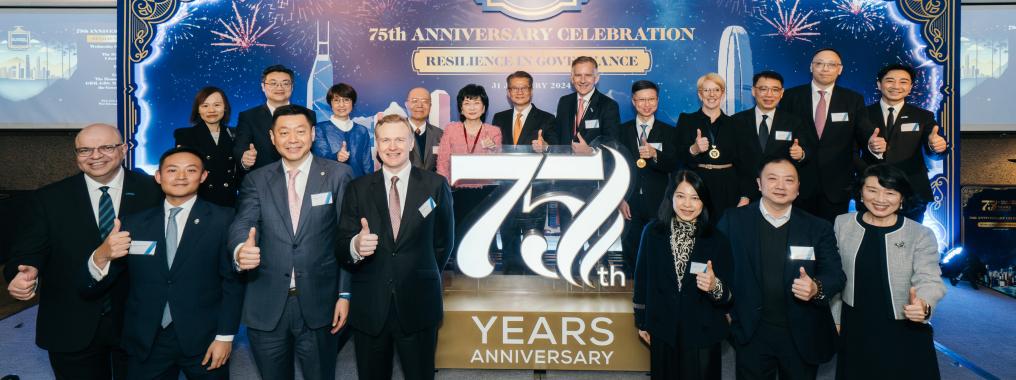
Governance – a collective endeavour
This year, as many readers of this journal will know, is a double anniversary for our Institute. It is 75 years since the first association of Chartered Secretaries was established in Hong Kong and 30 years since the incorporation of The Hong Kong Institute of Chartered Secretaries, our precursor body.
On 31 January this year, our Institute gathered together friends, partners and members to celebrate this anniversary and I would like to thank everyone who joined us for this event. One of the key themes to emerge over the course of the evening was that the Institute does not, and should not, work alone. Good governance cannot be the creation of a single institution – it requires input and hard work from diverse parties. It was fitting that our Anniversary Celebration enabled us to acknowledge and thank all of our partners in governance – those individuals and organisations who have contributed their time and expertise to take forward the Institute’s work.
The evening was not only about celebrating our past, however. Two Fellows of the Institute – The Honourable Paul Chan Mo-po, GBM GBS MH JP, Financial Secretary of the HKSAR Government, our Guest of Honour at the event, and Dr Anthony Neoh QC SC JP FCG HKFCG, recipient of the HKCGI Prize 2023 – gave motivational speeches that not only celebrated our common history, but also launched a discussion of the key themes our profession needs to address in the emerging business environment.
Very much in that spirit, I would like to focus my message this month on the challenges that lie ahead of us. Our Institute has a forward focus and a core part of this is the annual strategy meeting of Council held every year around this time. On 24 February, Council members, senior Secretariat executives and I met up to assess the big picture affecting our work and one issue that we addressed is the current drop in student numbers, which is an issue that is now affecting several professions.
At the meeting, we considered the possible causes of this drop and, of course, the potential solutions – the future of our Institute clearly depends on our ability to attract students to the profession. In turn, this ultimately rests on the demand in the marketplace for qualified governance professionals, as well as demands for specialists in sustainability and other compliance topics, and our ability to create appropriate pathways to remain competitive. Market demand may fluctuate of course, but the recognition of the value that good governance and other specialist expertise brings to organisations of all kinds is a constant.
In this sense, the long-term prospects for our Institute and profession are as solid as ever. Our Institute is the premier qualifying body for Chartered Secretaries and Chartered Governance Professionals in this region, and we aim to be the best-in-class governance educator and the Institute of choice for all governance professionals.
As readers of this journal will know well, we also aim to be a leading voice in governance and our research work is a critical part of that. This edition of CGj reviews our latest research report – A Comparative Study on ESG Scores across Rating Agencies: Cases in Hong Kong – produced in collaboration with Hong Kong Metropolitan University. The report looks at the way ESG ratings providers operate in Hong Kong and the implications for companies in terms of how to adapt and improve their ESG disclosures.
I would like to thank everyone who contributed to this report, which can be found in the Thought Leadership section of the Institute’s website: www.hkcgi.org.hk. Institute Council member Professor Alan Au Kai-ming FCG HKFCG, along with Dr Xiao Shanyun, Professor Xie Nina, Liang Luojia, Ye Yulian and Liu Qingyu of Hong Kong Metropolitan University, authored the report, while Institute Deputy Chief Executive Mohan Datwani FCG HKFCG(PE) was contributing editor. I would also like to thank the Institute’s Technical Consultation Panel members for their input and support of the project.
The report, together with our educational, training and advocacy work, is testament to the impact we can have in the rapidly evolving business environment. Our Institute is fully committed to building the expertise needed in a marketplace where regulatory and risk management frameworks are becoming increasingly complex, and where strategic decision-making and ethical conduct are key factors in organisational success.


